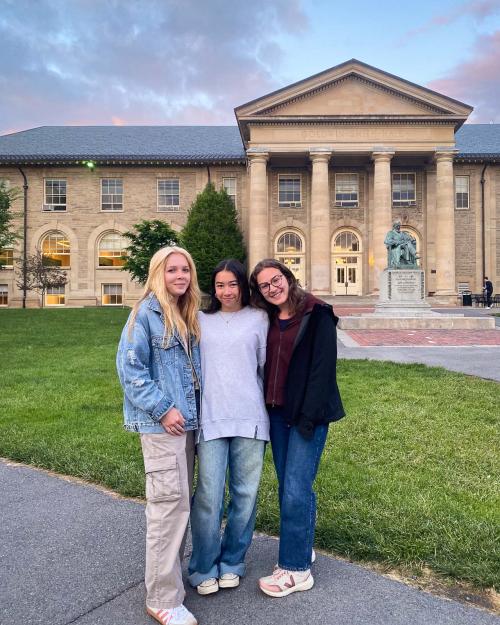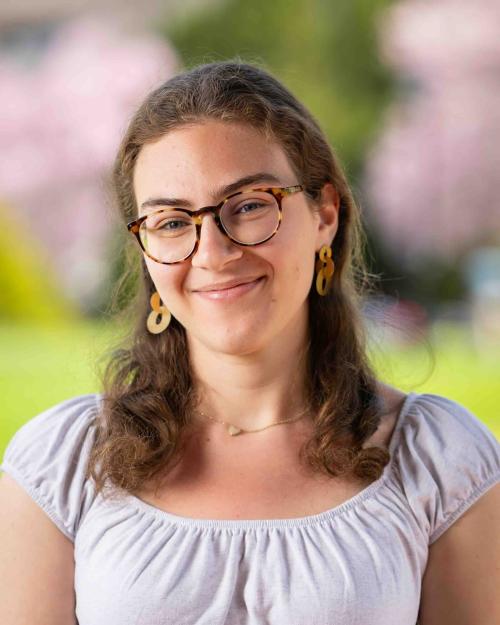Rafaela Uzan
German Studies & Government
Paris, France
What was your favorite class and why?

I have enjoyed so many of my classes, but one that really stands out for me is Introduction to Critical Theory, which I took my junior spring semester. I loved this class because it was very interdisciplinary: not only did it combine my interests in government and German studies, but it also included discussions of important literary works. We read many political texts by authors like Theodor Adorno and Herbert Marcuse, on topics ranging from fascism to public opinion, as well as short stories and plays by Kafka and Brecht. The readings were often challenging, but Professor Fleming explained them in a way that made them very accessible, often helping us draw connections between the texts and current issues, whether it be the fight against climate change or the use of social media. Some of the questions we discussed in class, including the link between art and politics and the difference between facts and opinions, have really stuck with me and changed how I think about politics.
What is your main extracurricular activity and why is it important to you?
My sophomore year I joined Cornell Women of MENA, a student-run publication focused on gender issues in the Middle East North Africa Region. I served as the club’s president for two semesters. Our magazine aims to provide the Cornell community with a different perspective on the MENA region than what is usually depicted in the mainstream media. We seek to combat common serotypes about the MENA region and its people, spotlighting and celebrating the region’s diversity, resilience and culture over division, conflict or war. I have met several of my closest friends through Women of MENA, and I strongly believe that our club’s mission has never been more crucial.
What Cornell memory do you treasure the most?

I will treasure so many Cornell memories, but I will definitely miss spending time in Temple of Zeus with my friends. I go there at least once a day (it’s the best coffee on campus in my opinion!) and it’s one of my go-to spots to study on weekends. You also always run into someone you know there! My friends and I have had many, many morning coffees, lunches, study (and yap!) sessions in Zeus, and I will cherish those moments for many years to come.
How have your beliefs or perspectives changed since you first arrived at Cornell?
At Cornell, I discovered the importance of asking questions. Whether you are asking a professor or a TA for a clarification, asking your friends for advice or coming up with a research question for a paper, posing questions is a big part of what you do in college (and in life!). Not knowing something, being unsure and trying to find the answer is the best way to grow and learn. The process of seeking out the answer is just as important as the answer itself. Oftentimes, answers can be inconclusive or yield more questions and doubts. All in all, in college I learned to embrace the unknown – both on an academic and personal level – and that saying “I don’t know” or “I’m not sure” is exactly how learning begins.
What are your plans for next year?
I am an incoming 2025-2026 James C. Gaither Junior Fellow at the Carnegie Endowment for International Peace. I will be working with the Europe Program and assisting with research on European and German foreign policy, the relationship between the United States and the European Union, and European politics more generally. While I am sad to be leaving Cornell, I know that my Arts & Sciences education could not have prepared me better for this next step!
Every year, our faculty nominate graduating Arts & Sciences students to be featured as part of our Extraordinary Journeys series.Read more about the Class of 2025.




